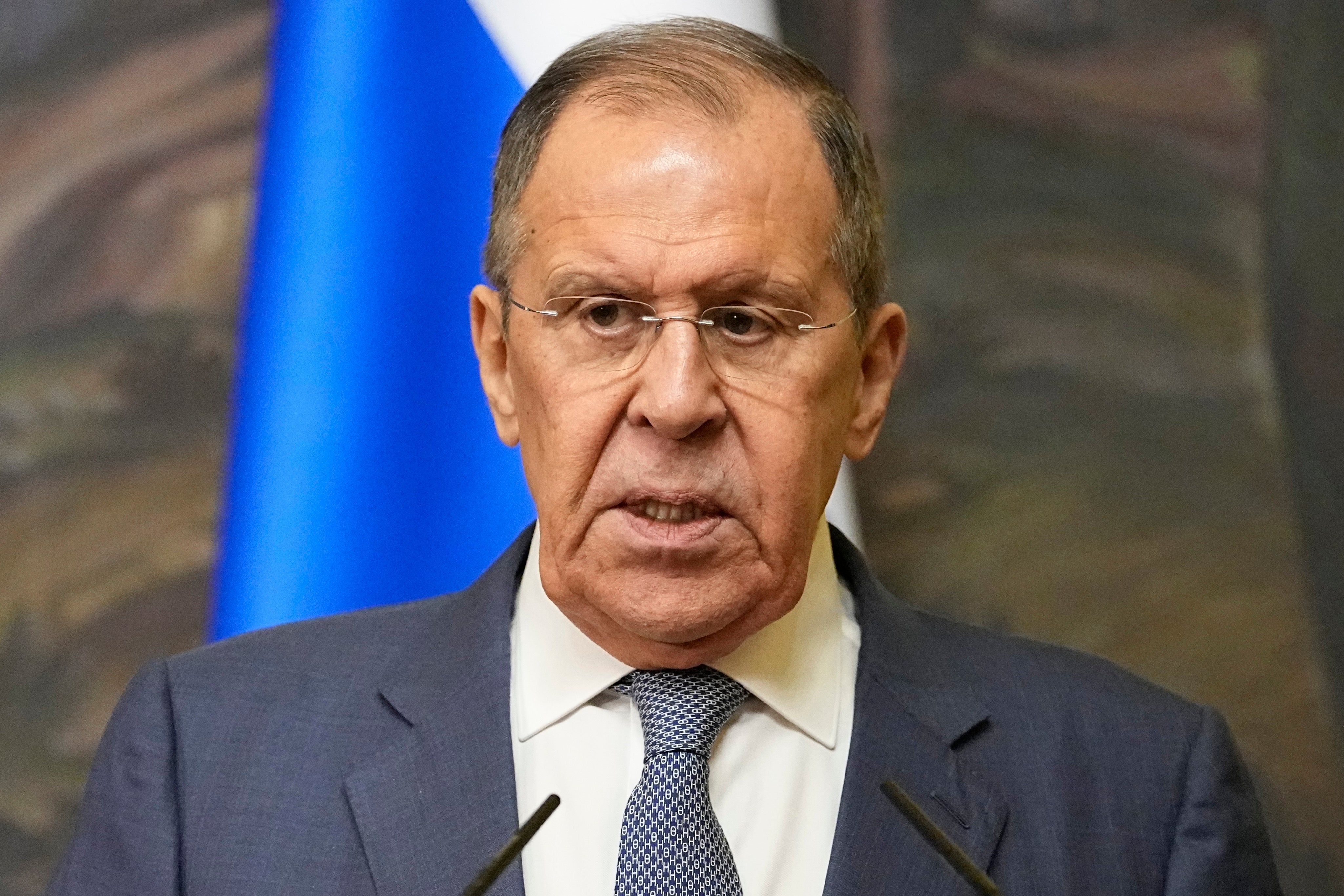Baltic nations' foreign ministers pull out of OSCE meeting over Russian foreign minister attendance
The foreign ministers of the three Baltic states say they will boycott a meeting by the Organization for Security and Cooperation in Europe being held this week in North Macedonia, in objection to the participation of Russia’s foreign minister

Your support helps us to tell the story
From reproductive rights to climate change to Big Tech, The Independent is on the ground when the story is developing. Whether it's investigating the financials of Elon Musk's pro-Trump PAC or producing our latest documentary, 'The A Word', which shines a light on the American women fighting for reproductive rights, we know how important it is to parse out the facts from the messaging.
At such a critical moment in US history, we need reporters on the ground. Your donation allows us to keep sending journalists to speak to both sides of the story.
The Independent is trusted by Americans across the entire political spectrum. And unlike many other quality news outlets, we choose not to lock Americans out of our reporting and analysis with paywalls. We believe quality journalism should be available to everyone, paid for by those who can afford it.
Your support makes all the difference.The foreign ministers of the three Baltic states have said they will boycott a meeting by the Organization for Security and Cooperation in Europe being held this week in North Macedonia, in objection to the participation of Russia’s foreign minister.
The foreign ministers of Estonia, Latvia and Lithuania issued a joint statement Tuesday saying they “deeply regret the decision enabling the personal participation” of Russia’s Sergey Lavrov. “It will only provide Russia with yet another propaganda opportunity.”
Lavrov said Monday he planned to travel to Skopje for the OSCE foreign ministers’ meeting, a trip which would mark his first visit to a NATO member country since Russia invaded Ukraine. In September, he was in New York to attend the United Nations' annual gathering of world leaders.
The 57-nation OSCE was set up during the Cold War to help defuse tension between East and West. North Macedonia currently holds the organization’s rotating presidency and its foreign minister invited Lavrov to the two-day meeting starting Thursday.
“For the past two years we have witnessed how one OSCE participating state has actively and brutally tried to annihilate another,” the Baltic foreign ministers said in their statement. “Let us be very clear: Russia’s war of aggression and atrocities against its sovereign and peaceful neighbor Ukraine blatantly violate international law.”
They also accused Russia of “obstructive behavior within the OSCE itself,” citing Russia’s prevention of an OSCE presence in Ukraine and by blocking Estonia’s chairmanship of the organization in 2024. Lavrov’s attendance at the Skopje meeting “risks legitimizing aggressor Russia as a rightful member of our community of free nations, trivializing the atrocious crimes Russia has been committing,” they added.
Speaking to reporters at NATO headquarters in Brussels Tuesday, North Macedonia’s foreign minister, Bujar Osmani, said he believed he would be meeting Lavrov in Skopje.
“Lavrov is not coming to Skopje, in a way. Lavrov is coming to the OSCE just as he went to (the) U.N. in New York a few months ago,” Osmani said. “I won’t be meeting him as the foreign minister of North Macedonia, but as the OSCE chairman in office.”
Asked what he would say to Lavrov, Osmani said: “I think the Russian Federation has violated (the) commitments of OSCE principles that we have voluntarily subscribed to 50 years ago.”
“We have condemned the aggressor throughout our chairpersonship. And also we have turned (the) OSCE into a platform for political and legal accountability of the Russian Federation for its deeds in Ukraine, and we will continue to do so. And this is what I am going to tell to Mr. Lavrov as well.”
There was no immediate reaction from the Russian Foreign Ministry to the statement by the three Baltic states.